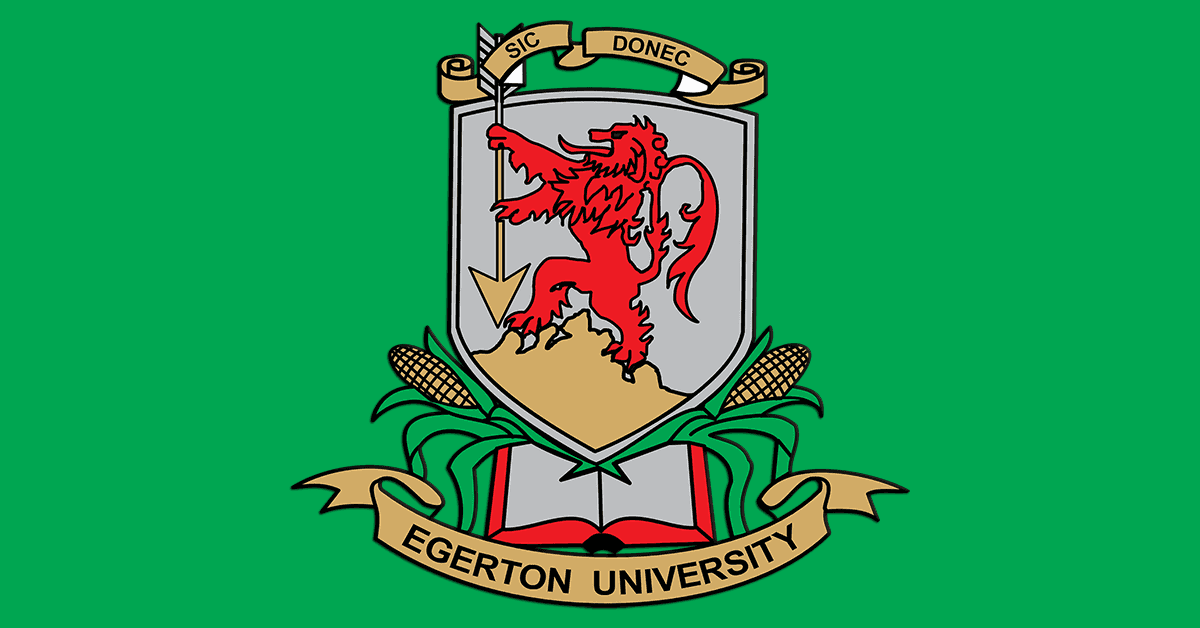Scientific research is essential for the advancement of science and humanity at large. It is not only an engine for the generation of new knowledge but also offers a lens through which current practices can be examined. Through constant inquisitions and scientific research, what is currently good and acceptable can be made better. No field accentuates the importance of scientific research as medicine. Medicine is a constantly evolving field with changes driven by evidence generated through scientific research. The importance for health professionals to develop good research skills and implement evidence-based practice cannot be overemphasized.
Towards this end, Egerton University’s Faculty of Health Sciences (FHS), has been moulding and producing research-savvy graduates. Research has a place in Egerton University, facilitated by supportive Faculty members, passionate students and a research club, Egerton University Research Club (EUReC). Faculty members have been instrumental in cultivating a research culture at the University. In addition to teaching research formally in class as part of the curriculum requirements, Faculty members have offered immense support and mentorship to students in their research journey.
EUReC is actively developing students’ research skills and coordinating various research projects. Three club members were honoured to present research abstracts at the 49th Annual KMA Scientific Conference hosted in Eldoret. The first of the abstracts was titled; Perception and Barriers to Research among Students of the Faculty of Health Sciences, Egerton University. The study was co-authored by Dr Lakati K. C., Muthomi Kennedy and Mugo Peter and presented at the conference by Muthomi Kennedy. The study revealed that medical students had an overall positive attitude towards research but are challenged by lack of mentorship, time constraints, and lack of knowledge. Mentorship, funding, and the teaching of research were the recommendations put forward as measures by which research can be promoted among students.
Mugo Peter presented the second abstract. The abstract was based on a study that assessed the Perceptions of Egerton University Faculty of Health Sciences Students towards Online Learning during the Covid-19 Pandemic. The study revealed that medical students had an overall negative perception of online learning. Students found online learning less engaging and less effective than physical lectures. It was recommended that a combination of online and physical learning should be adopted in the post-pandemic period.
Peter Wambua, a tech-savvy medical student, also presented a healthcare IT program project currently in development, Tech-Health Connection for Universal Health Coverage. The program aims to promote health-seeking behaviour and the realization of universal health coverage. The program will give users access to health information through a USSD code without the need for internet access. This is targeted at helping all individuals, especially those with poor internet coverage, access accurate health information tailored to their inquiry.
The most recent research project investigated the patterns, prevalence and impact of chronic leg ulcers at Nakuru level 5 hospital. The project was spearheaded by the outgoing Chair of the Surgery Department Dr Peter Oduor, and a team of students Mouti Nilson, Kibet John, Muthomi Kennedy and Mugo Peter. Mugo Peter was honored to present an abstract of the research at the 2022 Annual Scientific Conference of the Kenya Society of Plastic, Reconstructive, and Aesthetic Surgeons (KSPRAS) hosted in Mombasa from 25th to 27th May.
The aforementioned scientific conferences have been instrumental in nurturing budding researchers. They provided an excellent platform for the budding researchers to showcase their work and gain experience presenting to a live audience. Additionally, it provided the perfect platform to forge new connections and receive mentorship. As a result, young researchers are being supported to find their niche and realize their full potential. In the words of John Crosby, the young researchers have found in mentors, a brain to pick, an ear to listen and a hand to push them in the right direction.
The realization of such opportunities for medical is largely thanks to all Faculty members at the University. The student fraternity is honoured to have the most supportive lecturers who are always willing to nurture the budding researchers. Special thanks to the Faculty members who facilitated the teams of students attending the KMA and KSPRAS conferences; Dr Oduor, Dr Otara, Dr Lutomia, Dr Nondi, and Dr Lakati, patron of the Egerton University Research Club, the Community Health Department lead by Dr Ramadhan Mawenzi, Catherine Wanyanga, Dr Ronald Omenge, David Njeru and Ms Judith Sawe and the Dean Dr Gathiri.
Reviewed by Dean, Faculty of Health Science Dr Christine Gathiri.








